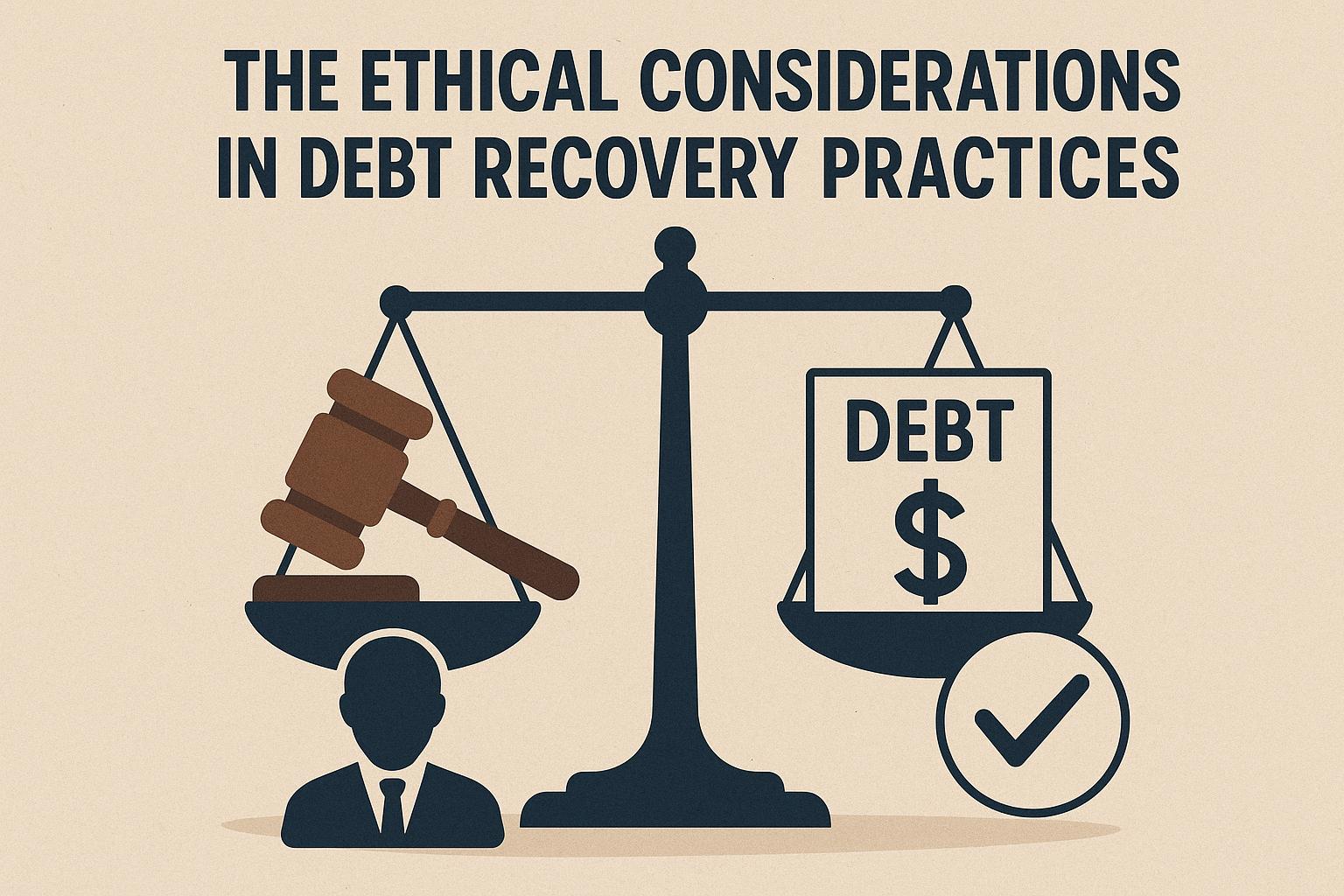
The ethical considerations in debt recovery practices.
Introduction
Debt recovery plays a pivotal role in ensuring the financial stability and sustainability of organizations. It aids businesses in reclaiming funds that facilitate continued operations and financial planning. Despite its importance, it’s essential that the process is carried out ethically to protect debtor rights and uphold the integrity of financial institutions. This article provides an in-depth exploration of the core ethical considerations in debt recovery, focusing on maintaining a balance between effective recovery strategies and treating debtors with dignity and respect.
Understanding Debt Recovery
Debt recovery encompasses various strategies and procedures that companies employ to collect unpaid debts from individuals or entities. This can be performed internally by a company’s recovery department or outsourced to specialized collection agencies. Though it plays an important role in business operations by addressing unpaid obligations, it also presents numerous ethical challenges that require careful consideration and management.
Compliance with Legal Standards
Adherence to legal standards is a pillar of ethical debt recovery. This entails a strict observance of the myriad of laws and regulations that govern debt collection practices in different jurisdictions. For instance, in the United States, the Fair Debt Collection Practices Act (FDCPA) serves as a cornerstone, outlining permissible actions for collection agents. Ensuring compliance not only prevents abusive practices but also safeguards all parties involved from potential legal consequences.
An organization’s commitment to legal compliance signals respect for regulatory frameworks and enhances public confidence. This practice involves regular training and updates for collection teams, ensuring they remain informed and compliant with evolving regulations.
Transparency and Honesty
Transparency is the bedrock of ethical interactions in debt recovery. It mandates that debtors are provided with complete and honest information about their obligations, including the debt’s origin, the exact amounts owed, and any details about added interest or fees. Clear communication prevents the spread of misinformation, which can occur if agencies withhold or manipulate critical information.
To uphold transparency, organizations should implement standard operating procedures for communications, ensuring that each interaction with a debtor strengthens trust and clarifies any confusion instead of exacerbating it.
Respect for Privacy
Respecting the privacy of individuals in debt recovery processes is imperative. Collection agencies handle sensitive personal and financial data, and misuse of such information can lead to significant ethical breaches and legal infringements. Therefore, any data obtained must be closely protected and shared only with authorized parties as dictated by data protection laws.
Emphasizing privacy requires robust data security measures and strict protocols dictating the handling, storage, and sharing of debtor information. Collection agents should receive ongoing training to familiarize them with privacy protection standards.
Appropriate Communication
Another component of ethical debt recovery is maintaining professional, respectful, and humane communication with debtors. Agencies must avoid any form of harassment or intimidation—actions that are not only unethical but also illegal in many jurisdictions. Ethical communication entails patience, allowing debtors the chance to discuss their financial situation and collaboratively explore feasible resolutions.
To practice appropriate communication, agencies should standardize interactions, ensuring all team members understand and adhere to ethical guidelines. Tracking communications can help oversee adherence and quickly address any deviations from established practices.
Consideration for Debtor’s Circumstances
Recognizing that each debtor’s financial situation is unique is essential for ethical debt recovery. This perspective advises against uniform or overly aggressive collection tactics, advocating instead for flexibility such as installment plans aligned with a debtor’s capacity to repay. By understanding and accommodating financial hardships, creditors can foster sustainable and successful recovery.
This approach involves an evaluation process that considers a debtor’s specific circumstances and tailors collection strategies accordingly. Agencies benefitting from staff trained in customer service and financial advising can offer constructive support to debtors striving to clear their obligations.
The Impact of Unethical Practices
The repercussions of unethical debt recovery practices extend beyond immediate financial concerns. Debtors are at risk of undue stress and financial ruin, while creditors and agencies face potential legal penalties, reputational harm, and financial losses. Moreover, these practices generally deteriorate trust in financial institutions, hindering relationships between creditors and debtors.
The implementation of ethical practices promotes a transparent and fair environment that benefits all parties. By cultivating ethical debt recovery, organizations avoid these negative outcomes and instead contribute to healthier financial interactions.
Conclusion
Ethics play a fundamental role in shaping the landscape of debt recovery. By committing to lawful guidelines, fostering transparency, upholding privacy, and catering to individual financial predicaments, organizations and collection agencies can balance the dual imperatives of effective collection and ethical integrity. These practices not only aid in successful debt recovery but also contribute positively to the long-term integrity of the financial ecosystem. For more comprehensive information, resources like those provided by the Federal Trade Commission can be invaluable in guiding ethical practices within debt recovery paradigms.
- Posted by
 admin
admin - Posted in Uncategorized
 Oct, 09, 2025
Oct, 09, 2025 Comments Off on The ethical considerations in debt recovery practices.
Comments Off on The ethical considerations in debt recovery practices.
